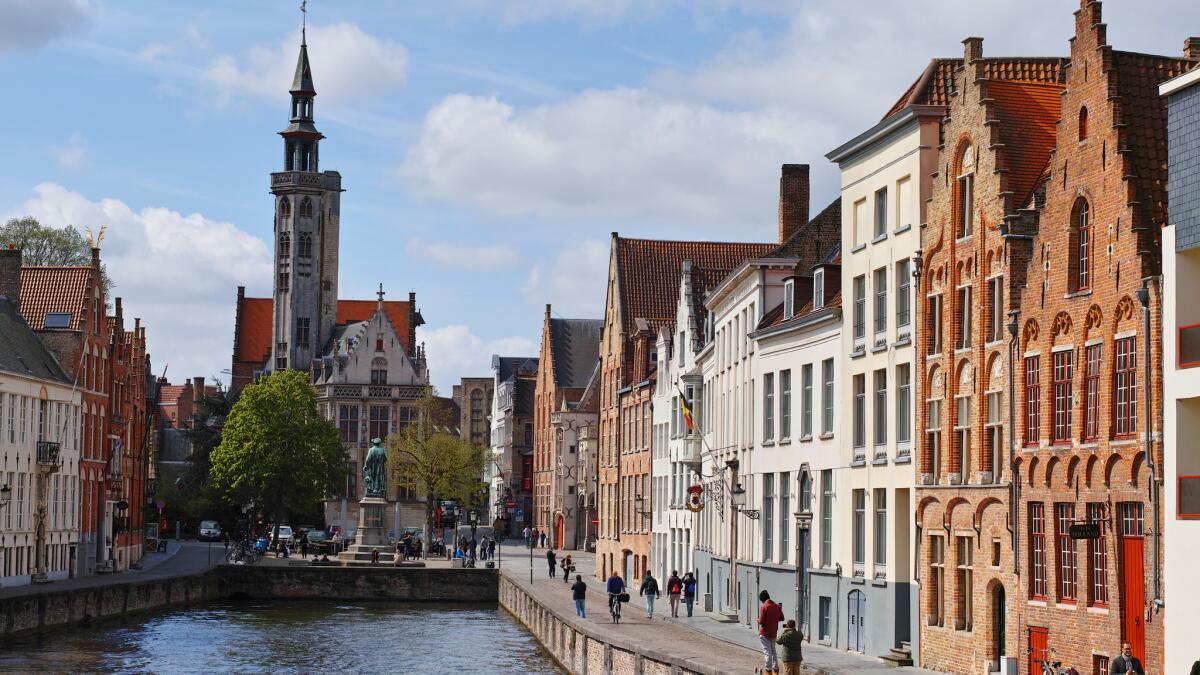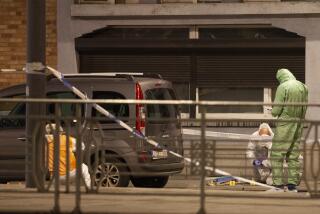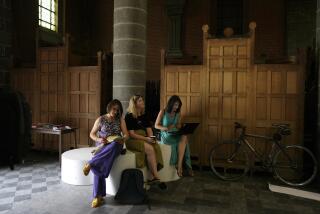After my marriage ended, I traveled to Belgium, where I had a life-changing encounter with Rebecca. It’s not what you think

The night after my 47th birthday, I found myself having dinner alone at a nearly empty restaurant in Bruges, Belgium. Three months before, my wife had told me she wanted a divorce, and my delayed response, as illogical as it seems, was to spend a week in Belgium.
I’m not sure what I was looking for other than the chance to see some art, hear some opera, perhaps attend a soccer match and a concert or two.
Did I think that somehow I would meet a charming Belgian woman of a certain age who would take my mind off my failed marriage? Or that despite my poor French and nonexistent Flemish I would find myself engaging in stimulating conversations with interesting people over a glass of Leffe or Peket?
Perhaps I did, but not surprisingly, neither of those things had happened.
So here I was, the night after my birthday and the night before my flight home, reflecting on a not unpleasant but rather melancholy week.
I was tired and a little depressed, so I wasn’t sure whether I should just return to the hotel and pack or check out one last spot, a bar whose name I’ve forgotten but whose guidebook description (“caters to a slightly older crowd”) I can still remember.
I left the restaurant intending to go back to the hotel but soon found myself in front of the bar described in the guidebook. Taking a deep breath, I walked in, not expecting much of anything except another solo drink at another Belgian café.
Which is what transpired at first. The bartender wasn’t particularly friendly; I tried to engage the man to my left in conversation, but he spoke little English. To my right were three of those attractive people you often find in European cities: a thirtysomething woman and a couple who were having an animated discussion, but in Flemish.
I figured I would finish my drink and leave.
But just then the thirtysomething woman said sharply, in English, “Well that’s not art, that’s bull….” I turned my head in surprise. Not only did this woman speak English but she also apparently had passionate opinions about art.
I should have said something, but I didn’t. Rather, I hoped, with the illogical thinking that had guided my entire trip, that perhaps the couple would leave but the woman would stay, order a second glass of wine and start a conversation with me.
Which, amazingly, is exactly what happened.
Her name was Rebecca, and she was a socialist. (“Have you been to Ghent?” she asked me. “It’s socialist.”). We talked about music, soccer, my experience in Belgium, her upcoming trip to Africa.
As we talked, other people joined our conversation, just the type of experience I had been craving all week.
Suddenly, she whispered to me, “I want to get out of here. Have you eaten?”
“No,” I lied.
“I’m having dinner with my boyfriend at a real Bruges restaurant. Do you want to join us?”
“Sure,” I said, secretly relieved there was a boyfriend.
“He’s meeting me at my parents’ house, a real canal house. I’d like you to meet my parents.”
We did all those things. I visited with Rebecca’s parents over a Leffe at their “real canal house.” I met her boyfriend (who looked as though he’d stepped out of the pages of GQ) and the three of us had dinner, my second of the evening, at a “real Bruges restaurant.”
But it was what happened on the walk to her parents’ house that changed my life. As we strolled down the quiet, picturesque streets of Bruges, she put her arm in mine.
It was a simple gesture, but it was also a gesture of true kindness, affection even, but not remotely romantic.
Rather it was the touch of someone who recognized my pain, my sadness, my loneliness.
As she took my arm, I realized, with startling clarity, that I hadn’t been touched like that in a very, very long time.
Departure Points, a monthly column, explores the ways in which traveling changes us, whether it’s a lesson learned or a truth uncovered. You may submit a first-person essay of 700 words or fewer to travel@latimes.com with “Departure Points” in the subject line. Please include your first and last names and your contact information for editorial consideration.
More to Read
Sign up for The Wild
We’ll help you find the best places to hike, bike and run, as well as the perfect silent spots for meditation and yoga.
You may occasionally receive promotional content from the Los Angeles Times.






